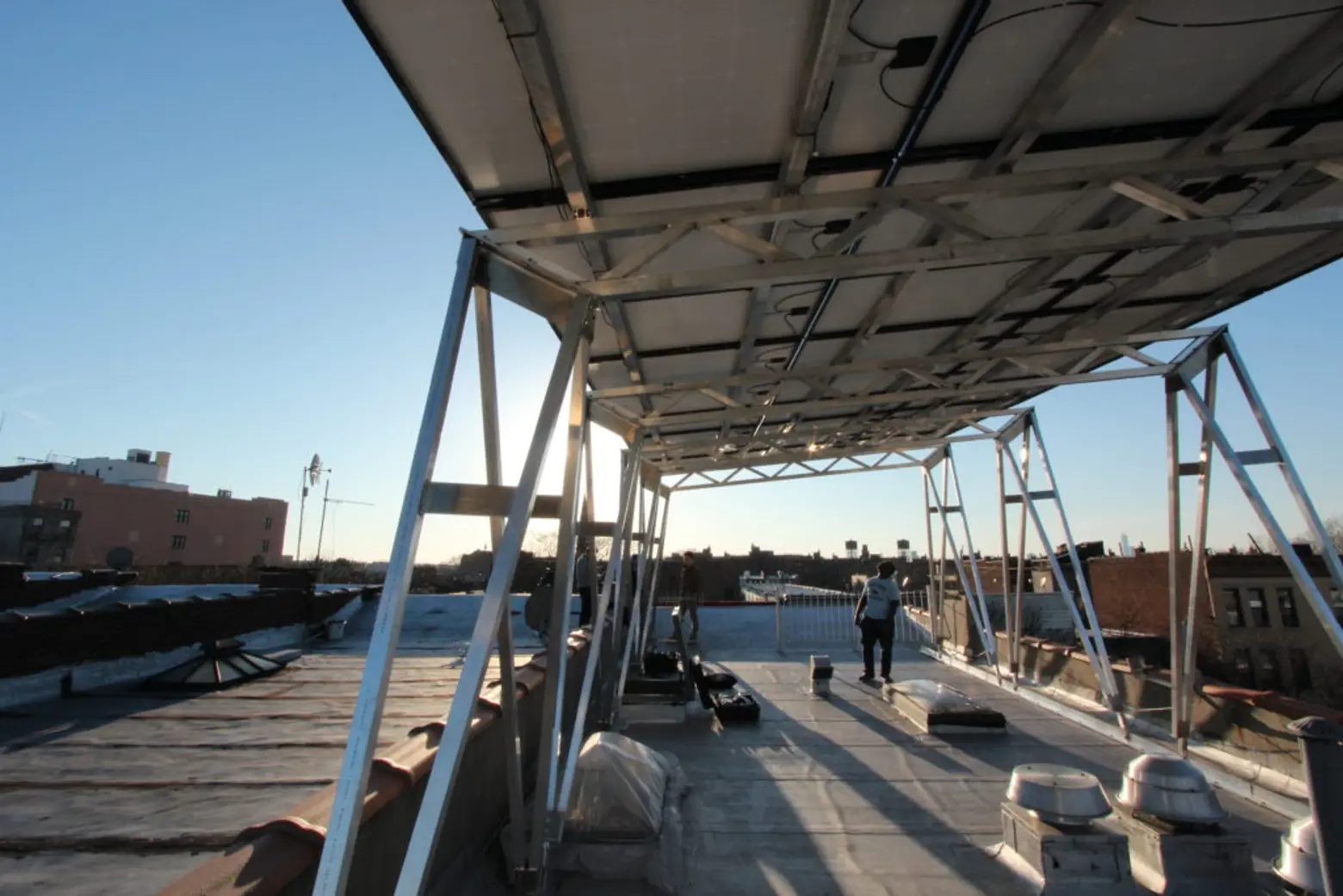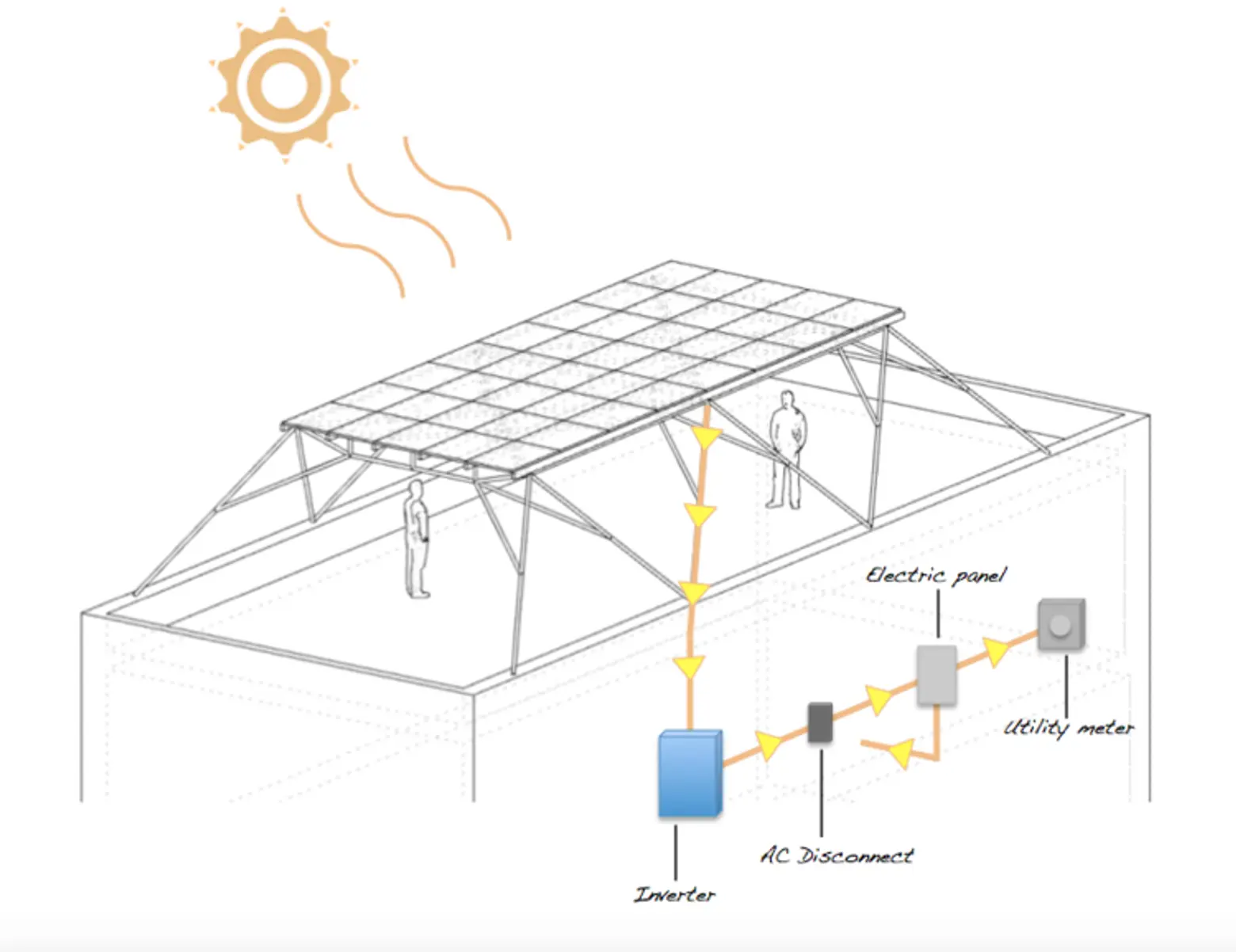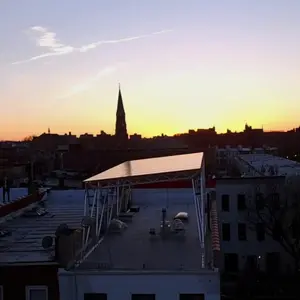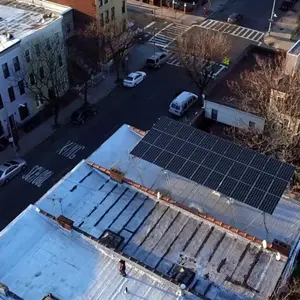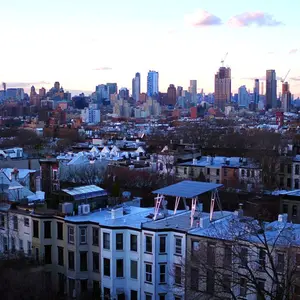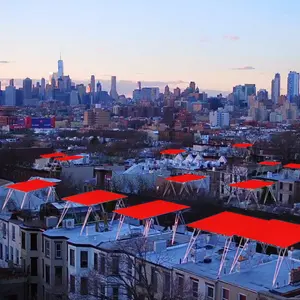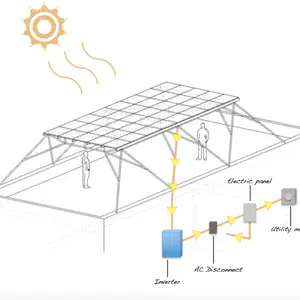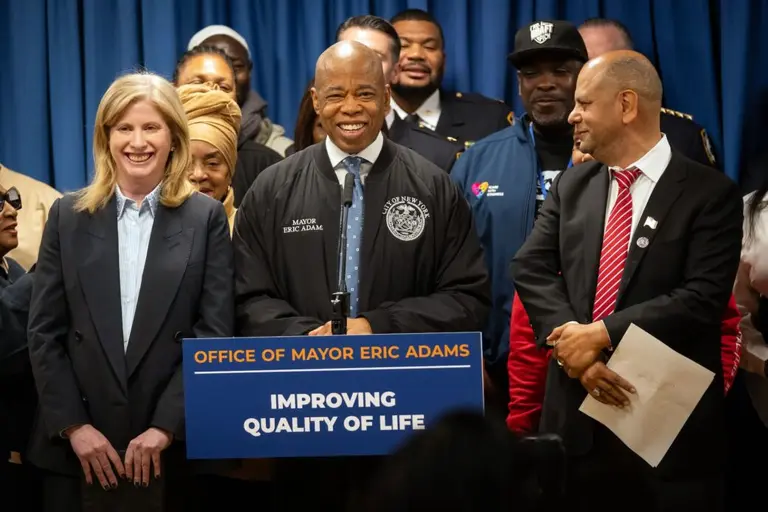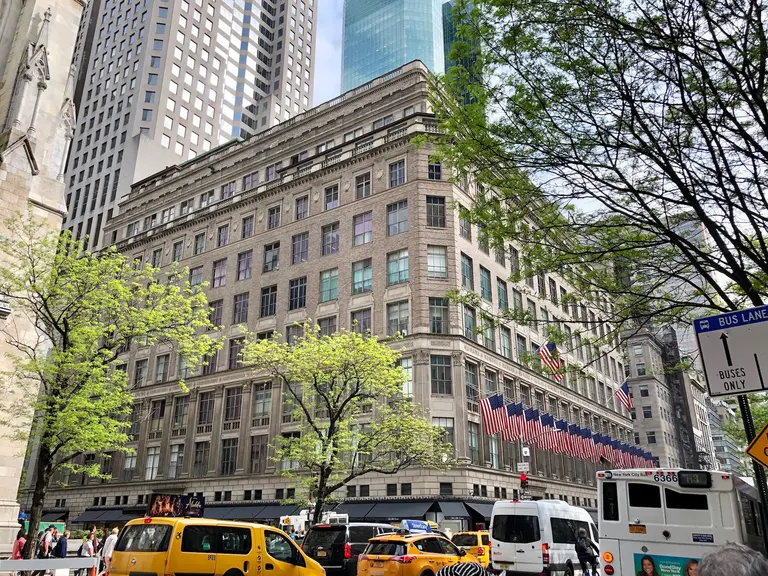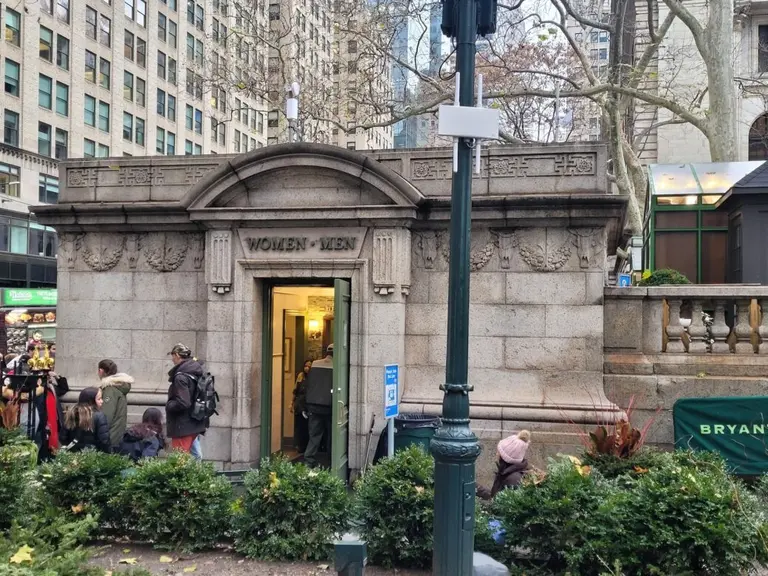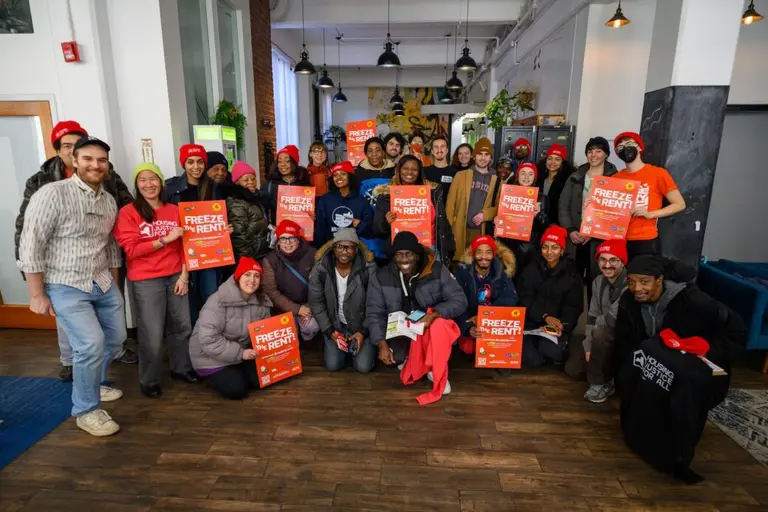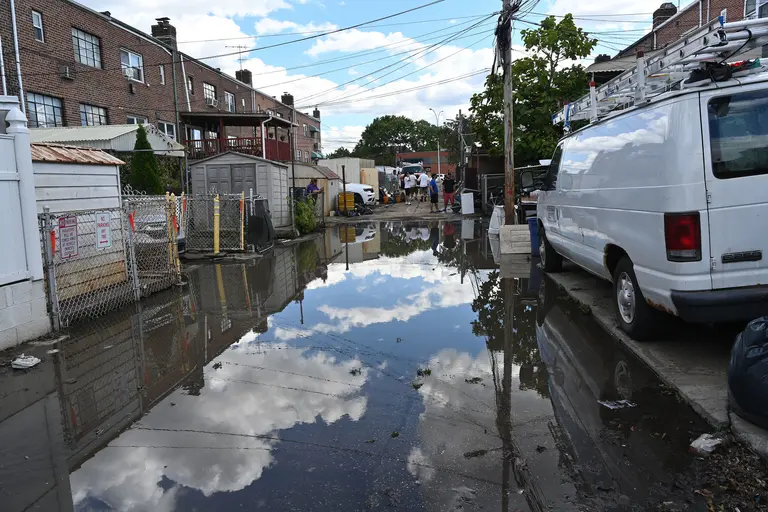New ‘Solar Canopy’ Can Be Installed Atop Any NYC Building to Provide Solar Power
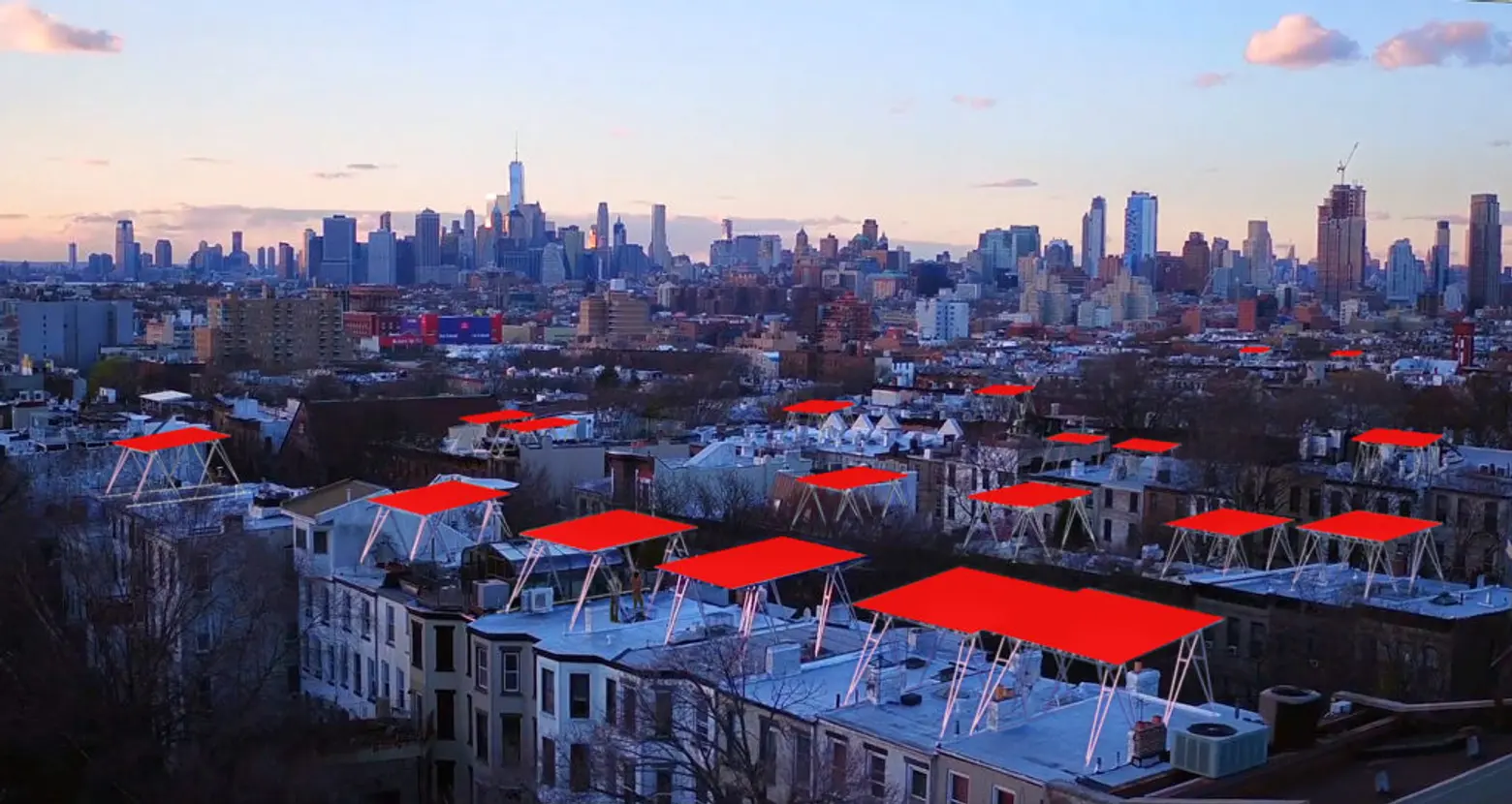
Brooklyn SolarWorks and Situ Studio have devised a clever and flexible solar panel system that not only adheres to the city’s strict building codes, but has been developed specifically for the characteristically flat rooftops of NYC. The “Solar Canopy,” as it has been named, is designed as a tent-like structure with a coverage of 2.5-feet by five-feet and a head clearance of ten feet above its pathway—plenty more than the nine feet required by the city. SolarWorks and Situ have already installed their Solar Canopy at several properties in Brooklyn, including atop homes in Bed-Stuy, Park Slope and Crown Heights.
The design solution employed to circumvent building codes is a simple one. Rather than setting the panels on a flat plane, Solar Canopy utilizes nine-foot A-frame columns bolted to rails that are attached to the building. The frame system also allows for a 33-degree pitch, which when pointed south, maximizes panel efficiency.
Each Solar Canopy is made up of 18 PV panels that can generate 600kWh per month, a rep at Brooklyn SolarWorks told 6sqft; Homes they’ve installed a canopy on used between 6,000kWh to 15,000kWh annually pre-installation (the number varied with property type and household size).
Another big plus is that because the design uses a parametric system, each canopy can be customized to meet different roof sizes without breaking any codes. The lofted system also preserves precious roof space for those who use the area as an escape or party space.
“We imagine what happens underneath these things will vary greatly from home to home,” SolarWorks co-founder Brad Samuels said to Wired. “You have to imagine this as an infrastructure that primarily supports solar but also creates a new space on top of roofs. Every person will customize it a bit differently. That can’t be designed exactly, but it can be designed for.”
The price of the Canopy is not cheap, and the aforementioned 18-panel setup costs about $30,000. Green tax incentives provided at the Federal, State and City levels do, however, bring the price down to about $7,000. As T.R. Ludwig, co-founder of SolarWorks, told Wired “Payback on these things is typically about six years.”
[Via Wired]
RELATED:
- Keep Your Apartment Cool and Cut Your Energy Bill This Summer With These Products and Tips
- 15 Air-Purifying Plants to Add to Your Apartment or Home
- This 1970s East Village Windmill Was Decades Ahead of Its Time
